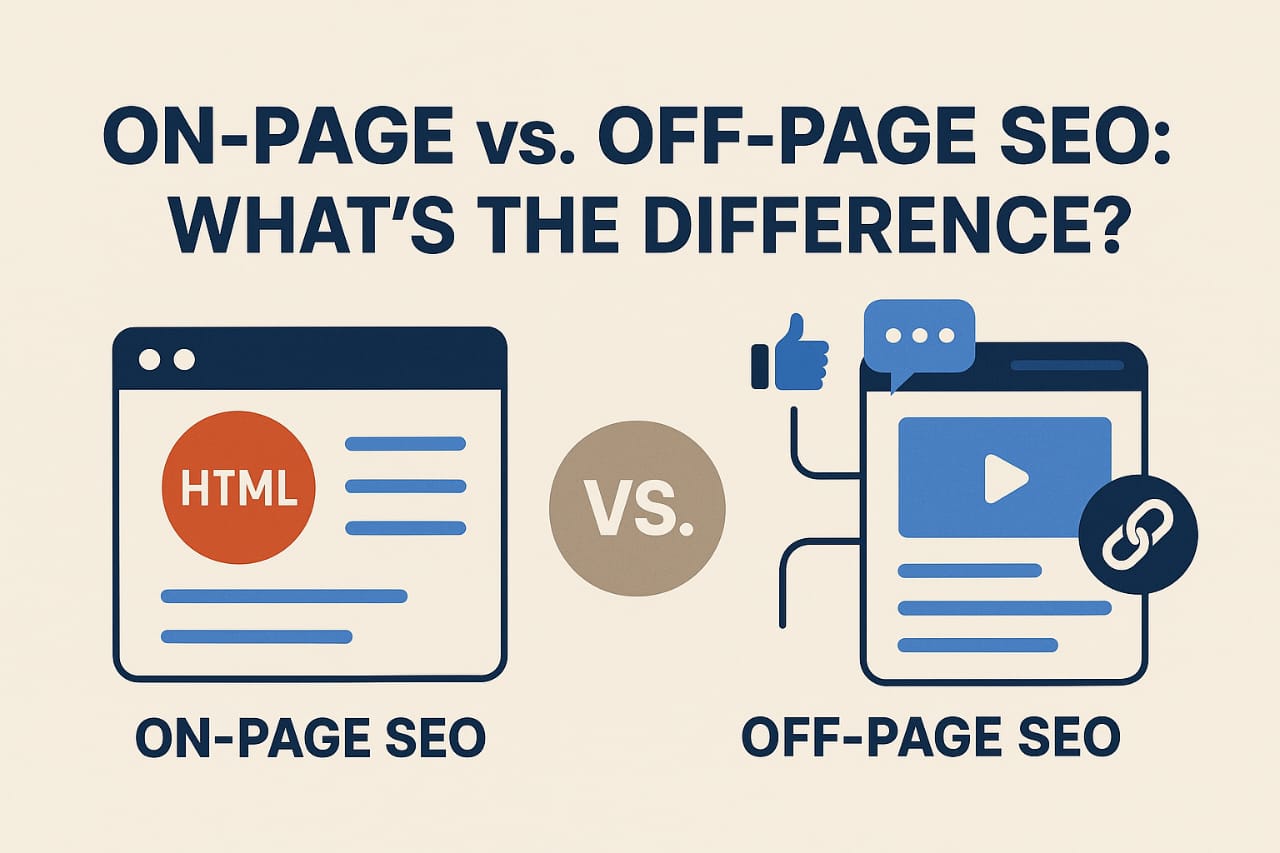
When we talk about increasing your website’s ranking in search engines such as Google, SEO (Search Engine Optimization) comes into play big time. However, SEO isn’t a singular entity—it consists of two major components: On-Page SEO and Off-Page SEO. Knowing the difference between the two can assist you in creating a more effective SEO plan for your website.
What is On-Page SEO?
On-Page SEO is all you can do on your site to make search engines know what you’re about and rank you better. This encompasses:- Keywords: Having the proper keywords that users are searching for.
- Title Tags: Ensuring each page has a clear, descriptive title.
- Meta Descriptions: Creating brief descriptions of what each page is about.
- Headings: Using H1, H2, and H3 tags to structure content.
- Content Quality: Producing useful, quality, and unique content.
- URL Structure: Making URLs short, readable, and keyword-related.
- Internal Linking: Linking to other sites within your own site.
- Mobile-Friendliness: Ensuring that your site functions properly on mobile phones and tablets.
- Page Speed: Ensuring pages load fast.
What is Off-Page SEO?
Off-Page SEO focuses on actions taken outside of your website to improve its reputation and authority. It’s mostly about building trust and popularity. Key elements include:- Backlinks: Getting other trustworthy websites to link to your site.
- Social Media Sharing: Sharing your content on platforms like Facebook, Twitter, and LinkedIn.
- Guest Blogging: Writing articles for other websites with links back to yours.
- Influencer Outreach: Getting influencers or bloggers to mention your site.
- Online Reviews and Mentions: Creating a good reputation throughout the web.
